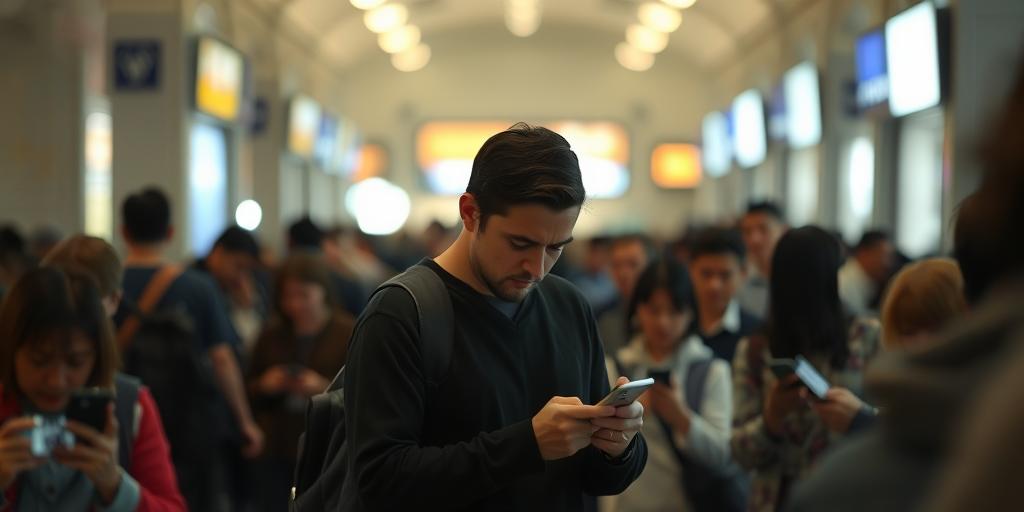Emerging technologies have revolutionized the way we communicate, learn, and even experience the world around us. While these advancements offer incredible opportunities, they also raise important questions about their impact on our social lives. Are we becoming more connected through these technologies, or are they actually driving us further apart?
The Rise of Digital Connection and the Paradox of Isolation
The allure of virtual worlds is undeniable. Emerging technologies like social media, instant messaging, and video conferencing have made it easier than ever to stay connected with friends and family, regardless of physical distance. We can share our lives in real-time, participate in online communities, and build relationships with people from all over the globe. This increased connectivity seems like a positive development, but it also comes with a hidden cost.
The ease of digital communication has led to a diminishing role for physical interaction. We’re increasingly choosing virtual interactions over face-to-face conversations, leading to a decline in traditional social skills and a weakening of interpersonal bonds. While we may be connected to a vast network of people online, we may find ourselves increasingly isolated in our own physical spaces.
The Impact of Emerging Technologies on Social Interaction
Emerging technologies are not simply changing how we communicate; they’re shaping the very nature of social interaction. Social media platforms, for example, create an illusion of connection. We can curate a carefully constructed online persona and present a sanitized version of our lives to the world. This can lead to feelings of inadequacy and social comparison, as we compare ourselves to the idealized versions of others we see online.
The rise of artificial intelligence (AI) is also raising concerns about the decline of human connection. AI-powered chatbots and virtual assistants are becoming increasingly sophisticated, capable of holding conversations and providing companionship. While these technologies can be beneficial for certain individuals, they also raise concerns about the potential for humans to become increasingly reliant on technology for social interaction, further isolating us from real-world connections.
Virtual reality (VR) and augmented reality (AR) technologies have the potential to revolutionize social dynamics. Imagine using VR to attend a virtual concert with friends, or using AR to overlay real-world interactions with digital information. These technologies could create immersive experiences that enhance social connection. However, they also pose the risk of further isolating individuals within their own virtual worlds, potentially hindering real-world social development.
The Psychological Effects of Isolation
The psychological effects of social isolation are well-documented. Loneliness, a feeling of social disconnection, can have a significant impact on mental health, contributing to depression, anxiety, and even physical health problems. It’s essential to recognize the potential for emerging technologies to exacerbate these issues.
The increasing reliance on technology for social interaction can erode empathy and social skills. When we spend less time engaging in real-world conversations and interactions, we may become less adept at understanding and responding to the nuances of human emotion. This can lead to difficulty forming meaningful relationships and navigating social situations.
There’s also the potential for digital addiction to further isolate individuals. The constant notifications, instant gratification, and endless streams of information available through our devices can create a cycle of addictive behavior, leading to decreased engagement in real-world activities and relationships.
Navigating the Digital Age: Strategies for Maintaining Connection
The key to navigating the digital age is finding a balance between embracing technology and preserving human connection. Here are some strategies for maintaining meaningful relationships in a digital world:
Prioritizing Real-World Interactions: Make a conscious effort to engage in face-to-face interactions with friends and family. Set aside time for in-person activities like meals, outings, or simply spending time together.
Cultivating Mindful Technology Use: Be mindful of how much time you spend on devices and social media. Establish boundaries and set aside specific times for digital detox. Use technology to enhance real-world interactions, not to replace them.
Building Meaningful Relationships Online: While online relationships can be valuable, remember that they shouldn’t replace real-world connections. Focus on building relationships with people you share common interests with, and engage in meaningful conversations.
Embracing Technology While Preserving Human Connection
Emerging technologies offer incredible opportunities for connection and growth. However, it’s crucial to use them responsibly and prioritize real-world interactions. The future of human connection in a digital world depends on finding a balance between embracing technology and preserving the value of face-to-face interactions. By being mindful of our technology use and making conscious efforts to connect with others in meaningful ways, we can ensure that technology enhances our lives without isolating us from the people and experiences that matter most.




